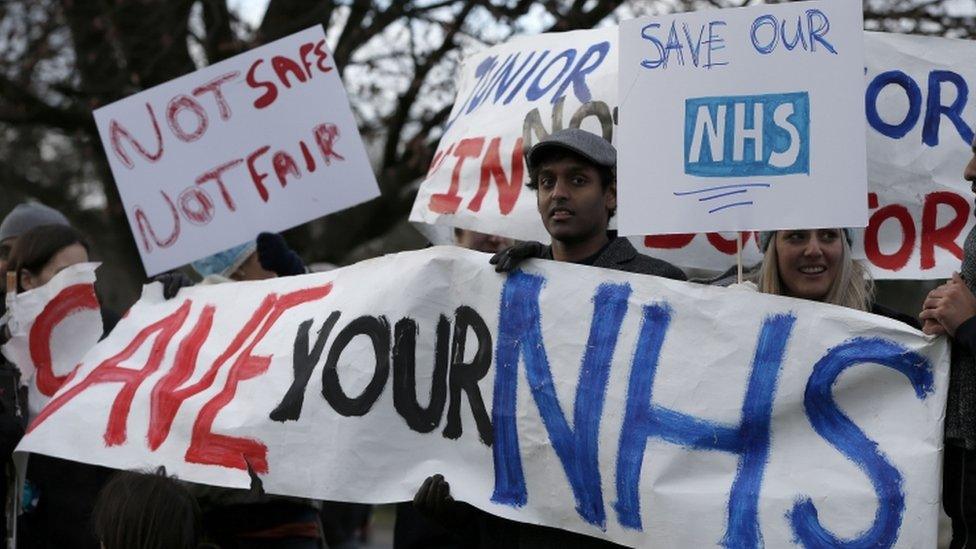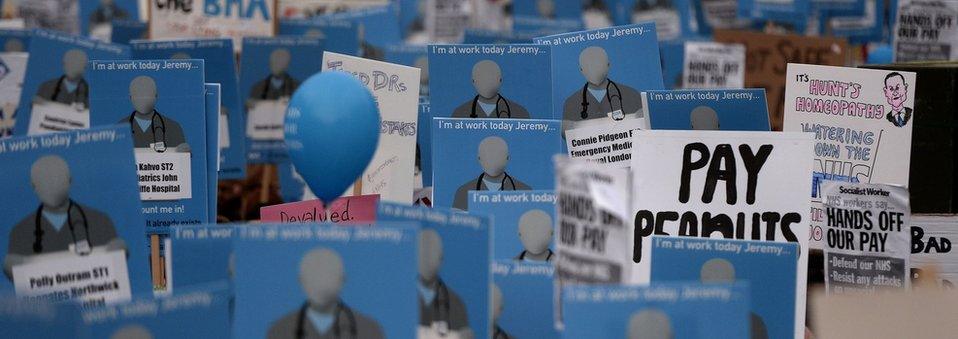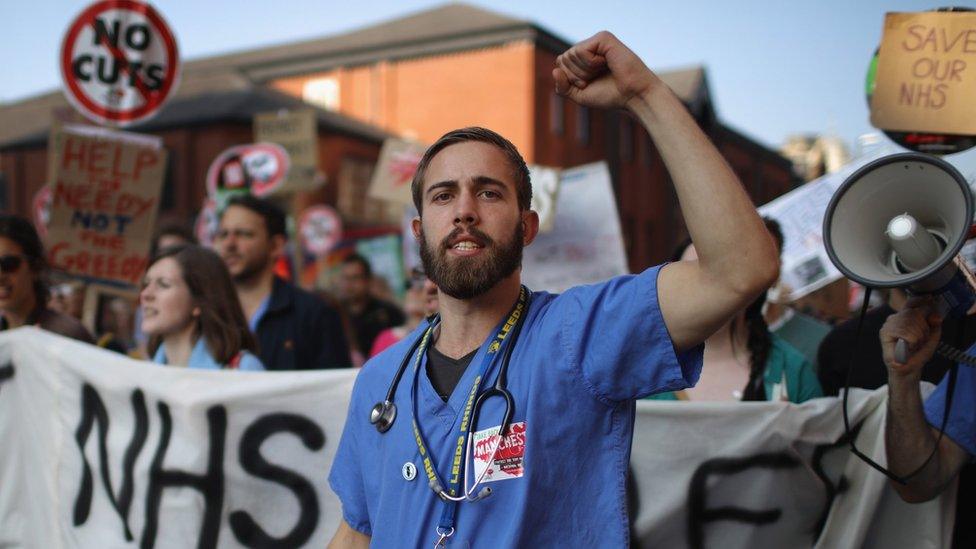Next week's junior doctor strike on
- Published

Next week's strike by junior doctors in England will go ahead as talks with the government have failed to reach a solution - but union leaders say medics will provide emergency cover.
The 10 February action was originally a full walk-out meaning medics would not have staffed emergency care.
It would have been an historic move and caused major disruption to hospitals.
But the British Medical Association has now stepped back from that, saying it wanted to minimise the impact.
However, the strike will last longer than planned - 24 hours rather than the 08:00 to 17:00 which was first announced.
The decision to scale back on the scope of the strike will bring a huge sigh of relief to hospitals.
A full walk-out has never happened before in the history of the NHS and would have led to a mass cancellation of routine treatments, such as knee and hip replacements, as consultants and other staff were redeployed to cover behind the junior doctors.

What is the dispute about?

The row between junior doctors and the government is over a new contract
Talks broke down in 2014, but the dispute has escalated since the summer after ministers said they would impose the deal
Ministers offered doctors an 11% rise in basic pay last year, but that was offset by curbs to other elements of the pay package, including payments for unsociable hours
The government says the changes are needed to create more seven-days services
BMA members were balloted in the autumn and 98% of those who voted backed strike action
Talks restarted in December, leading to three days of strikes being called off, but these have so far failed to reach a breakthrough, which is why walk-outs are now taking place

The stoppage will be the second walk-out by junior doctors over the contract dispute.
The first took place over 24 hours on 12 January and led to about one in 10 non-emergency operations being cancelled, while a 48-hour walk-out planned for last week was called off while talks took place at the conciliation service Acas.
BMA junior doctor leader Dr Johann Malawana said despite some "good progress" the union had been left no choice but to announce the stoppage would take place.
He accused the government of taking an "entrenched" position by insisting the extra pay doctors get for working on a Saturday is cut.
Dr Malawana said: "What we are asking for is fair and affordable recognition of unsocial hours."
He added the union "deeply regretted" the disruption the strike action would cause.

Analysis: Are we reaching the end game?
The noises coming out of both camps suggest we're getting close to the end of the road - at least in terms of what talks can achieve.
A number of letters between some of the key players in the dispute have been released and it appears the main sticking point now is Saturday pay.
While the government has made concessions, it still wants 7am to 5pm to be classed as normal working hours and therefore attracting no extra pay. This is simply unacceptable to the BMA.
But unless the union budges on this stance the person brought in by the government to find a way through this dispute, the respected hospital boss Sir David Dalton, has told ministers there's little point getting back round the table.

A Department of Health spokeswoman pointed to concessions that had been made in recent weeks, including guarantees about the number of weekends doctors would have to work and making a more generous offer on extra payments for a Saturday.
She that demonstrated the "strong desire" of the government to reach a deal.
"It is regrettable that the BMA is proceeding with further unnecessary industrial action," she added.
- Published6 April 2016
